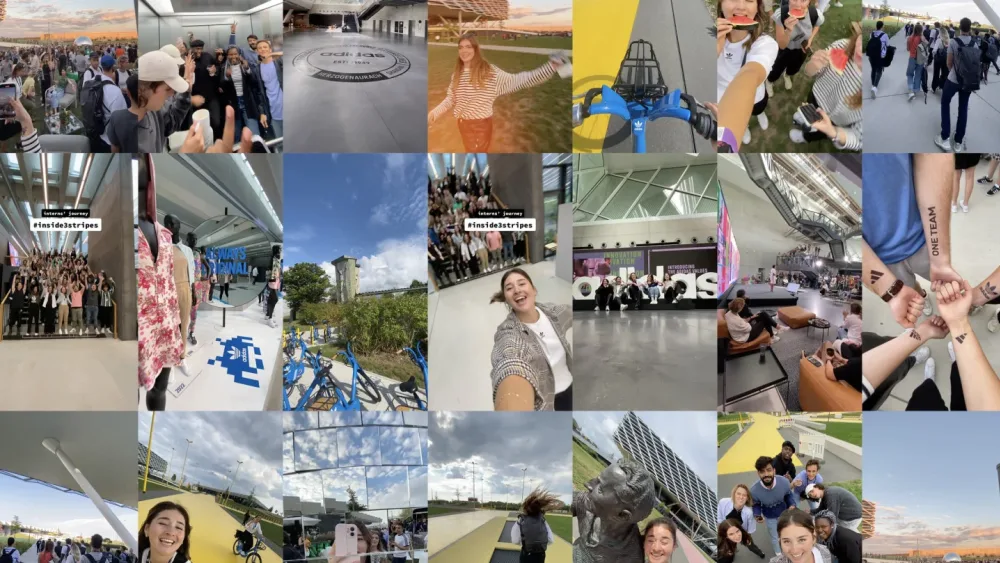
5 Motivational Stories from Grand Slam Champion Caroline Wozniacki
Caroline Wozniacki turns physical and psychological challenges into motivational stories. See how she has dealt with questioning herself, being questioned, and getting what she wants out of life.

At the age of 20, Caroline Wozniacki became the number one tennis player in the world. Throughout her 15-year tennis career, she held that title for 71 weeks (the end of 2010, most of 2011, the end of 2017, and early in 2018). In 2018, she won the Australian Open, her first grand slam title. Whether you’re a tennis buff or not, the motivational stories behind these achievements are sure to inspire.
Caroline recently stopped by the adidas headquarters and chatted with a group of colleagues about overcoming physical and psychological challenges. Her answers to how she has dealt with extreme situations come naturally in the form of motivational stories. Drawing from them may just put you in touch with your own untapped powers.
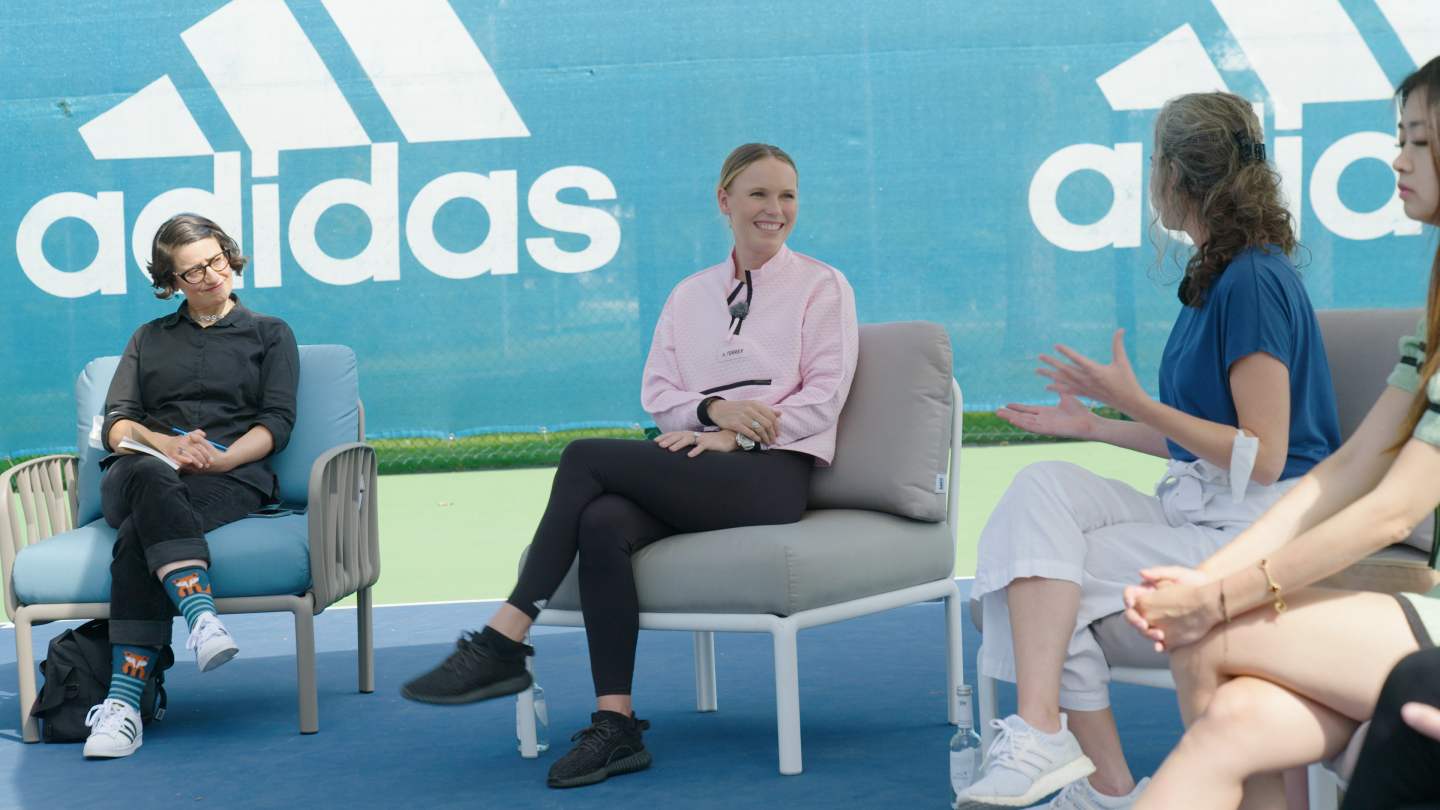 Caroline speaks candidly about performing under pressure, winning big, and what comes next.
Caroline speaks candidly about performing under pressure, winning big, and what comes next.
1.Knowing what she wants and asking for it
When Caroline was a child, she admired Anna Kournikova’s playing, but also her fashion. Caroline’s father said if she wanted to wear outfits like Anna’s she would need to find a way to get them. He did not plan on indulging her yen for fashion. He did, however, help her find the phone number to adidas’ Danish office. Caroline dialed the person in charge and said, “Hi, I’m a Danish champion, and I’m going to be number one in the world one day. Would you be able to get me some clothes?”
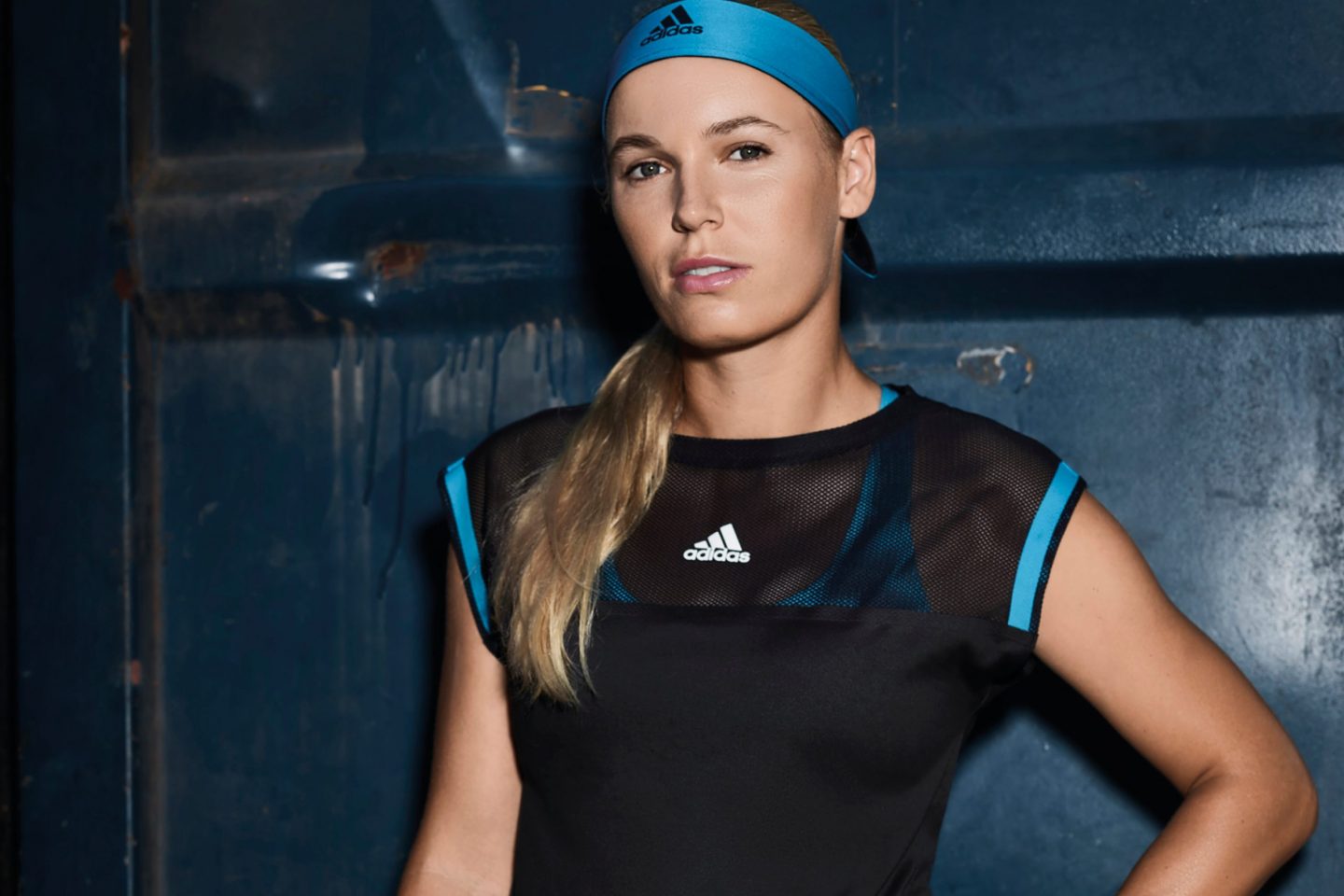 Caroline has always set her sights far – and been fearless in her reach.
Caroline has always set her sights far – and been fearless in her reach.
In telling the story, Caroline claims that the man on the phone was likely shocked by how forward she was. In any case, he told her he would send her some catalogs and that she was welcome to select the outfits she wanted. Thus, begun her partnership with adidas – with confidence, clear goals, and fearlessness.
2.Rising up from painful questions
For much of the time that she was ranked as the top tennis player in the world, Caroline had not yet won a grand slam title. Therefore, she was frequently asked how it felt to be number one without a championship title to her name. At a certain point, she admits, these questions began getting to her. But then she found a way to put them in a positive light.
“I was working hard, doing everything I could. And I realized everyone asking me how it felt to be number one without a grand slam title was a worse tennis player than I was. I was number one in the world. That’s pretty cool.’”
"I was working hard, doing everything I could. And I realized everyone asking me how it felt to be number one without a grand slam title was a worse tennis player than I was."
Reframing her accomplishments allowed her to enjoy the eight years of her professional career before winning a grand slam title and certainly deserves its place in our round-up of motivational stories.
3.Reacting differently when faced with a similar challenge from the past
Occasionally we find ourselves in a situation that is eerily familiar to one we’ve experienced in the past. These moments present clear glimpses of our progress: will we react better than before? Next on our list of motivational stories stems from one of the most painful matches of Caroline’s career – one she says she still cannot watch – was at the 2011 Australian Open. “It was the second set, 40-30, 5-4, my serve. I just got really nervous at that moment and questioned where I was going to serve. I lost that set and ended up losing the match.”
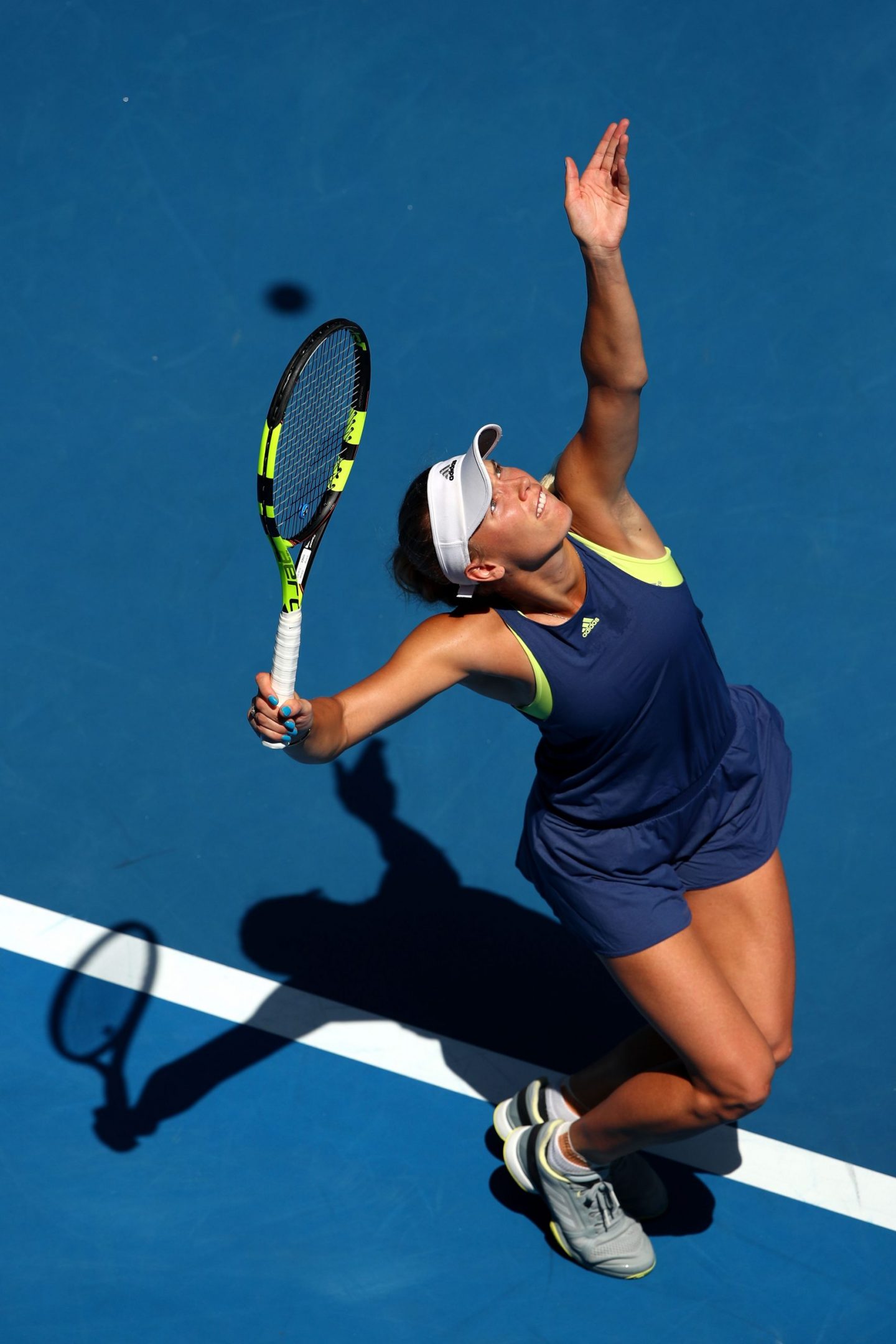 In high-stakes moments, trusting ourselves is key. ©Clive Brunskill/Getty Images
In high-stakes moments, trusting ourselves is key. ©Clive Brunskill/Getty Images
Fast-forward seven years. “I was in the exact same position in the Australian Open playing Elise Mertens: 40-30, 5-4, second set, and I didn’t finish it off. At this point I was thinking history repeats, right? I remember being so angry.
"I had promised myself I was never going to question myself on the court again."
For some reason, that made me just relax. I went for it, won the second set, and made it into the final.”
Not only did she win the final, but she recognized a familiar scenario and reacted with a turbo-charged response.
4.Insisting on being heard by medical professionals
It’s not clear exactly when Caroline’s rheumatoid arthritis began. She had been feeling unwell on and off for a while. “I just attributed it to being run down from tennis and having a crazy schedule.” But the symptoms became unignorable one morning in 2018.
The day after playing a match, she woke up in her hotel room in Montreal and said to her husband, David, “I don’t know what’s going on, but I can’t move.” He thought maybe she was in pain from the physical exertion of the day before. She assured him this was not that kind of pain. “It feels like I have mono and like I’ve been hit by a truck,” she said.
She began seeing doctors, trying to figure out what would cause such extreme pain that she couldn’t get out of bed by herself, couldn’t even lift her arms to brush her hair or teeth. “I was scared. I wondered if I was dying. I had to figure it out.” Doctors had varying responses. “Maybe you’re just in bad shape. Maybe you’re pregnant. Maybe you’re just making it up,” they said.
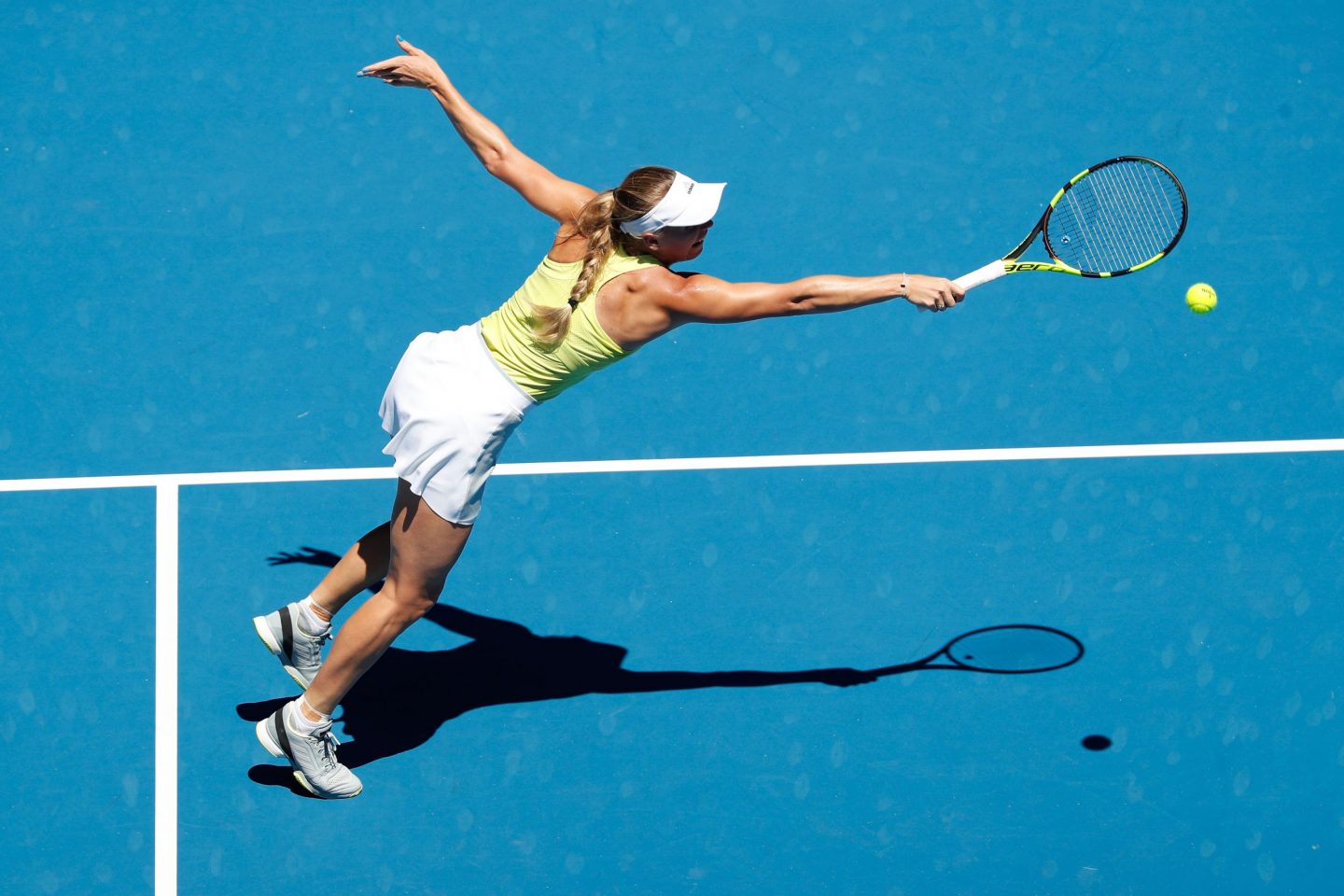 Caroline is applying the fortitude gained on the court in her advocacy work off the court. ©Michael Dodge/Getty Images
Caroline is applying the fortitude gained on the court in her advocacy work off the court. ©Michael Dodge/Getty Images
“I insisted that something was wrong. I told them I was in the best shape of my life,” she said. “With the fifth doctor I said, ‘Test me for everything. Do all the blood tests you need to do.’” That’s when they discovered that Caroline had an auto-immune disease, which a specialist eventually identified as rheumatoid arthritis. She was 28 years old.
She realized that if she was not being taken seriously – as an athlete with access to premium medical services – then the concerns of others were also likely being dismissed. She started a campaign, Advantage Hers, to spread awareness about chronic inflammatory diseases.
“On average, it takes years to get diagnosed,” she points out. “You feel better, you feel worse, and it doesn’t go away. It’s important to get a diagnosis early to address symptoms sooner and improve your quality of life.”
"I want to let people know that they can take charge of their own health."
“We can tell our doctors, ‘Check me out, please. I need to know what’s wrong.’”
Caroline is using her experience and platform to support others in listening to their bodies and advocating for themselves.
5.Retiring on her own terms
Being diagnosed with a chronic inflammatory disease did not prompt Caroline to retire. She proceeded to win the China Open in October of 2018, her 30th singles title. The following year, she played in fourteen tournaments.
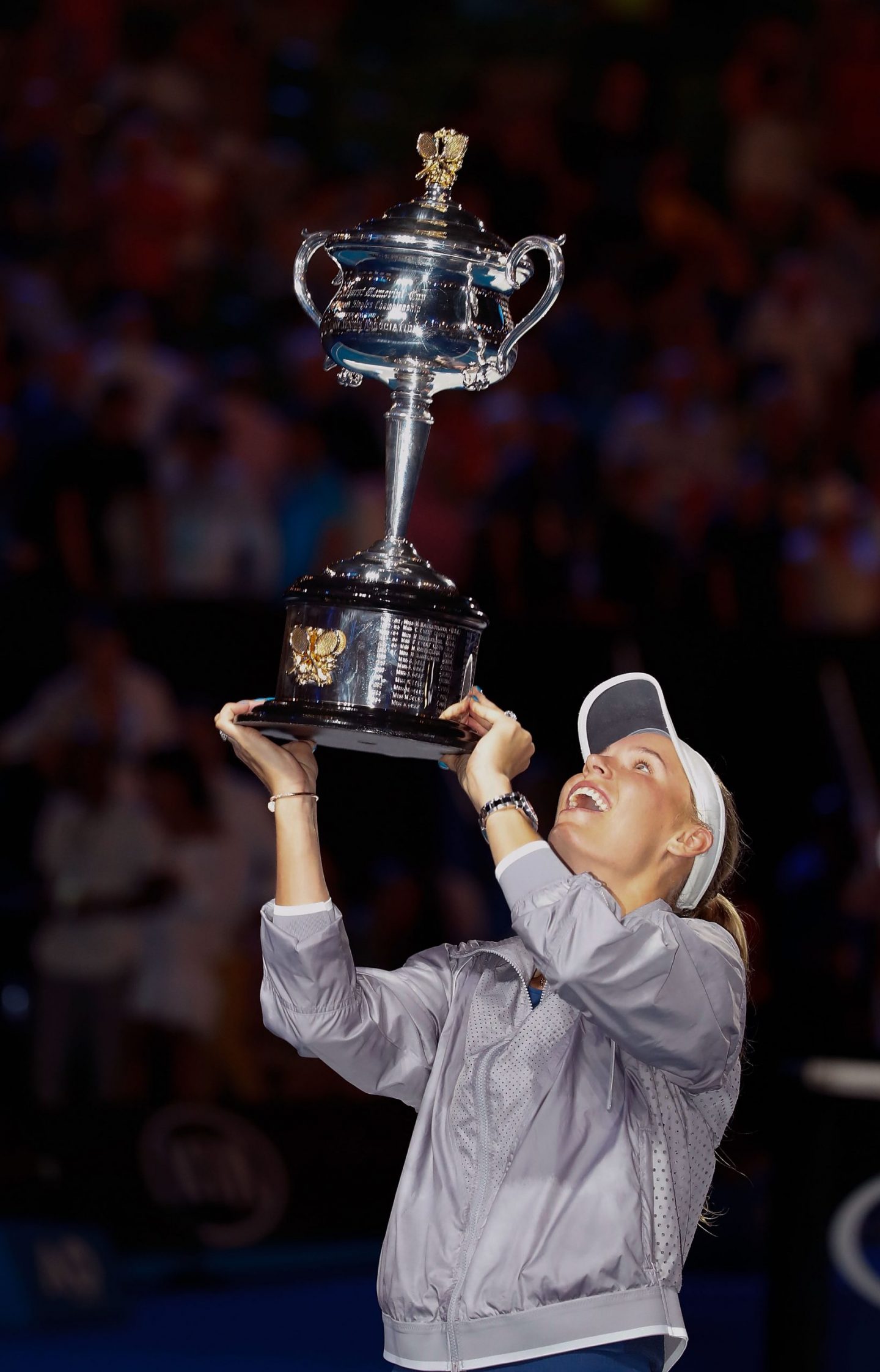 The successes of one career prepare us for what comes next. ©Scott Barbour/Getty Images
The successes of one career prepare us for what comes next. ©Scott Barbour/Getty Images
The decision to retire was a difficult one. Having started playing tennis when she was six or seven, the game was a huge part of her life. “Deciding took a while of talking with my dad, who was my coach, my family, and my husband. I had to ask myself what I wanted out of my life and what the next chapter would be. I think it helped knowing in the back of my head that I could always come back to tennis if I missed it. But I’d always wanted to start a family, so that seemed like a natural next step.” Her daughter, Olivia, arrived in June of 2021.
Ultimately, her decision to retire was guided by what she wanted next and what would continue to make her life fulfilling.
Keep an eye out to see what is next for Caroline. She mentioned an interest in television, and her ability to tell motivational stories will surely come into play.


